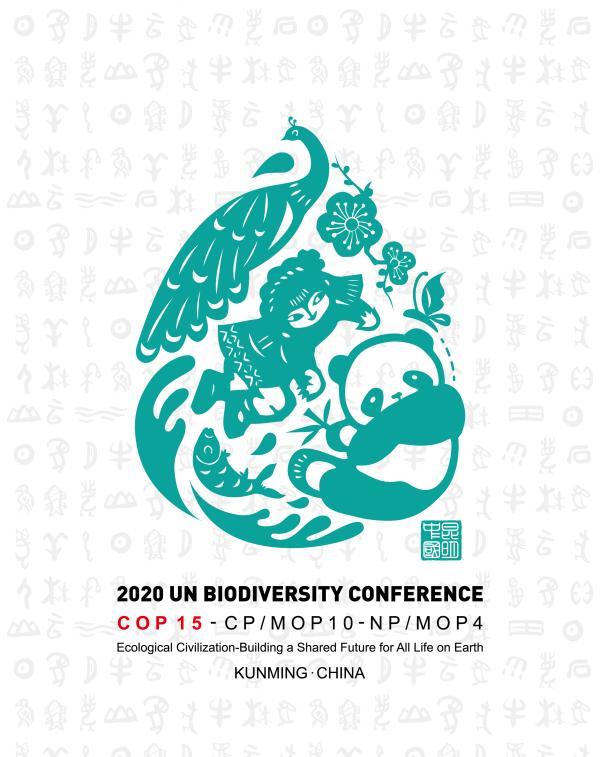UN envoy reiterates China's biodiversity commitment
By LIU YINMENG in Los Angeles | chinadaily.com.cn | Updated: 2020-10-01 11:29

China's ambassador to the United Nations said Wednesday that China envisages a "bright future of harmonious coexistence between man and nature".
World leaders convened at a virtual UN summit on biodiversity under the theme "Urgent Action on Biodiversity for Sustainable Development".
As the host country for the 15th Conference of Parties to the Convention on Biological Diversity in China in 2021 (COP15), President Xi Jinping reiterated China's strong commitment to preserving biodiversity and promoting sustainable development.
According to the UN, many countries have failed to fully meet any of the Aichi Biodiversity Targets, a set of 20 goals governments agreed to in 2010 to conserve biodiversity that range from preserving species to reducing deforestation by 2020.
A post-2020 global biodiversity framework will be adopted at the international conference, which will take place in May in Kunming, "the City of Eternal Spring", in China's Yunnan province.
"Biodiversity conservation is closely linked with sustainable development and is a major challenge to the world," said Zhang Jun, China's permanent representative to the UN, to reporters after Xi's speech, which was delivered via video at the UN General Assembly Hall in New York.
Noting that COP15 will be held in Kunming next year, the ambassador said the Summit on Biodiversity is the only thematic summit and the only one in the development area in the current session of the UN General Assembly.
"This reflects the importance the international community places on biodiversity conservation and its significant role in promoting sustainable development. China envisages a bright future of harmonious coexistence between man and nature, which is vital for sustained human development," Zhang said.
Emphasizing that man and nature are interdependent, the ambassador said achieving balance between the two is key to combating climate change and COVID-19 and to protecting the environment and ecosystem.
"We need to adhere to ecological civilization, increase the drive for building a beautiful world and find a way for man and nature to live in harmony," he said.
He stressed China's commitment and efforts in promoting the development of ecological civilization.
Between 2009 and 2019, China topped the world in forest increase with a total of 70.39 million hectares (272,000 square miles) of land afforested. New afforestation in China accounts for 25 percent of the world's total since 2000, the ambassador said.
Nowadays, China eliminates 2,424 square kilometers (936 square miles) of desertified area on average every year, while in the late 1990s, desertified area in China expanded by 10,400 square kilometers per year. With strenuous efforts in the past three decades, China's Kubuqi Desert, once known as a "death zone", has become an oasis, Zhang added.
"During this year's general debate, world leaders have expressed grave concern over global challenges and called for solidarity and cooperation. China will adopt stronger policies and measures to peak its carbon dioxide emissions before 2030 and achieve carbon neutrality before 2060," he said.
China's experience in pursuing green development could provide a reference for other countries, the ambassador said.
"We stress the need to promote green development, build back better and find development opportunities in preserving nature. China pursues innovative, coordinated, green, open and shared development and follows a path of green, low-carbon and sustainable development. These efforts are consistent with the implementation of the 2030 Agenda for Sustainable Development," Zhang said,
He pointed to people living in border and remote areas of China who have overcome poverty and live a better life through green development as evidence of China's successful strategy.
Furthermore, in 2019, the share of non-fossil fuels in China' s primary energy consumption reached 15.3 percent, the ambassador said.
The installed renewable power capacity in China accounted for 30 percent of the world's total and 44 percent of global growth. In addition, China's electric vehicles account for over half of the world's total.
"This shows that the goal of green development can be reached with strong commitment and hard work," the ambassador said.
Zhang reiterated China's commitment to multilateralism. The world is filled with confusion and depression due to exacerbated climate change, the continued spread of COVID-19 and global economic recession, he noted.
"As the world's second-largest economy, China remains committed to promote reform, development and economic transformation and to make painstaking efforts to fulfill its responsibilities through concrete actions. This is in sharp contrast to some countries' refusal to implement their international obligations," Zhang said.
The ambassador extended a welcome to delegates to COP15, which will have the theme "Ecological Civilization: Building a Shared Future for All Life on Earth".
"As the host country of COP15, China is ready to share with all parties what it has been doing in biodiversity conservation, discuss and draw up plans for protecting global biodiversity and work with all parties to build a beautiful world," he said.
"Kunming is known as the ‘Spring City', and Yunnan province is the most biologically diverse area in China. ... We believe that COP15 will produce fruitful results for the global biodiversity conservation process," Zhang added.
























